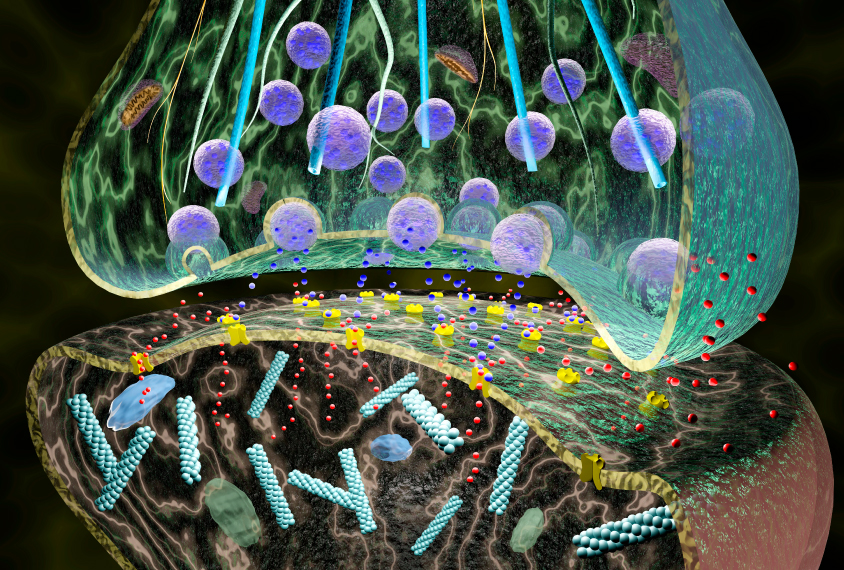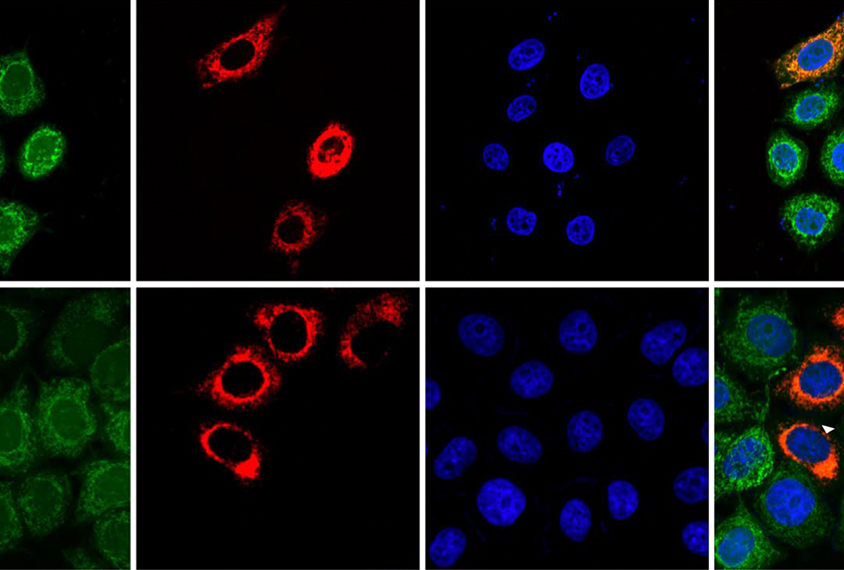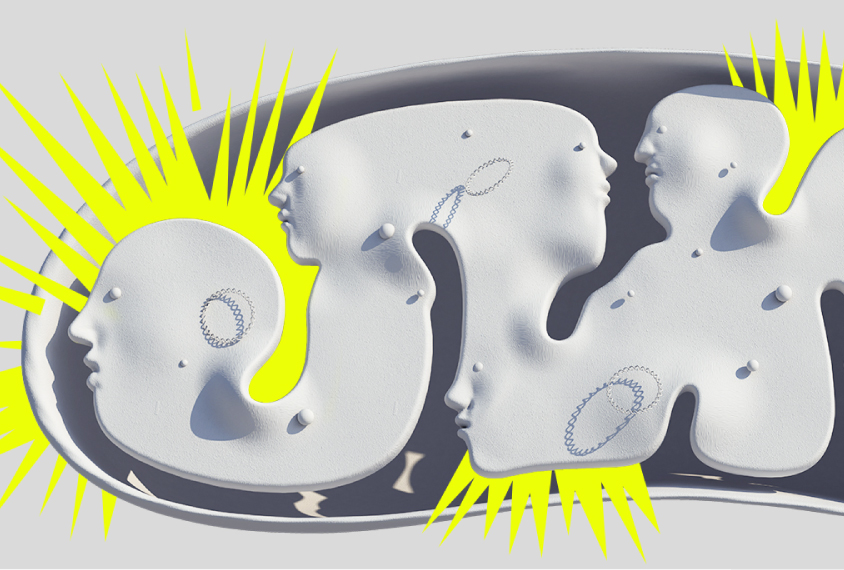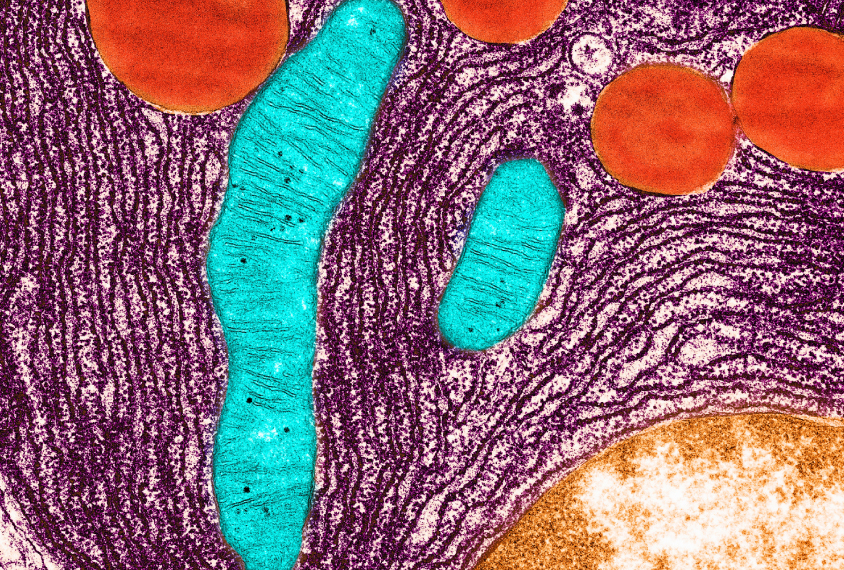The mitochondria candidate: Is the cell’s powerhouse a hidden factor in autism?
Recent articles
Mitochondria mediate effects of PTEN mutations
Whole-genome sequencing data — which include information about mitochondrial DNA — offer clues to why mutations in the same gene can lead to autism or cancer.

Mitochondria mediate effects of PTEN mutations
Whole-genome sequencing data — which include information about mitochondrial DNA — offer clues to why mutations in the same gene can lead to autism or cancer.
Multi-omics study captures CNTNAP2’s far-ranging effects
The in-depth approach shows mutations in the autism-linked gene disrupt neuronal growth and communication, as well as mitochondrial gene expression.

Multi-omics study captures CNTNAP2’s far-ranging effects
The in-depth approach shows mutations in the autism-linked gene disrupt neuronal growth and communication, as well as mitochondrial gene expression.
Unlocking the mitochondrial genome for autism research
The DNA specific to mitochondria is difficult to access, but new methods place its secrets within reach.

Unlocking the mitochondrial genome for autism research
The DNA specific to mitochondria is difficult to access, but new methods place its secrets within reach.
Mitochondria: An energy explanation for autism
People with autism have more mutations than others do in both mitochondrial DNA and nuclear DNA that affects mitochondrial function.
Mitochondria: An energy explanation for autism
People with autism have more mutations than others do in both mitochondrial DNA and nuclear DNA that affects mitochondrial function.
Meet the ‘mitomaniacs’ who say mitochondria matter in autism
Clues that problems with mitochondria contribute to autism have been accumulating for decades. In the past five years, a mutant mouse and a flurry of findings have energized the field.

Meet the ‘mitomaniacs’ who say mitochondria matter in autism
Clues that problems with mitochondria contribute to autism have been accumulating for decades. In the past five years, a mutant mouse and a flurry of findings have energized the field.
Changes to mitochondrial DNA spur autism-like traits in mice
Mice with a mutation in their mitochondrial DNA show altered brain activity, repetitive behaviors and reduced sociability, according to a new study.

Changes to mitochondrial DNA spur autism-like traits in mice
Mice with a mutation in their mitochondrial DNA show altered brain activity, repetitive behaviors and reduced sociability, according to a new study.
Explore more from The Transmitter
Shifting neural code powers speech comprehension
Dynamic coding helps explain how the brain processes multiple features of speech—from the smallest units of sounds to full sentences—simultaneously.

Shifting neural code powers speech comprehension
Dynamic coding helps explain how the brain processes multiple features of speech—from the smallest units of sounds to full sentences—simultaneously.
Astrocytes orchestrate oxytocin’s social effects in mice
The cells amplify oxytocin—and may be responsible for sex differences in social behavior, two preprints find.

Astrocytes orchestrate oxytocin’s social effects in mice
The cells amplify oxytocin—and may be responsible for sex differences in social behavior, two preprints find.
Neuro’s ark: Spying on the secret sensory world of ticks
Carola Städele, a self-proclaimed “tick magnet,” studies the arachnids’ sensory neurobiology—in other words, how these tiny parasites zero in on their next meal.

Neuro’s ark: Spying on the secret sensory world of ticks
Carola Städele, a self-proclaimed “tick magnet,” studies the arachnids’ sensory neurobiology—in other words, how these tiny parasites zero in on their next meal.